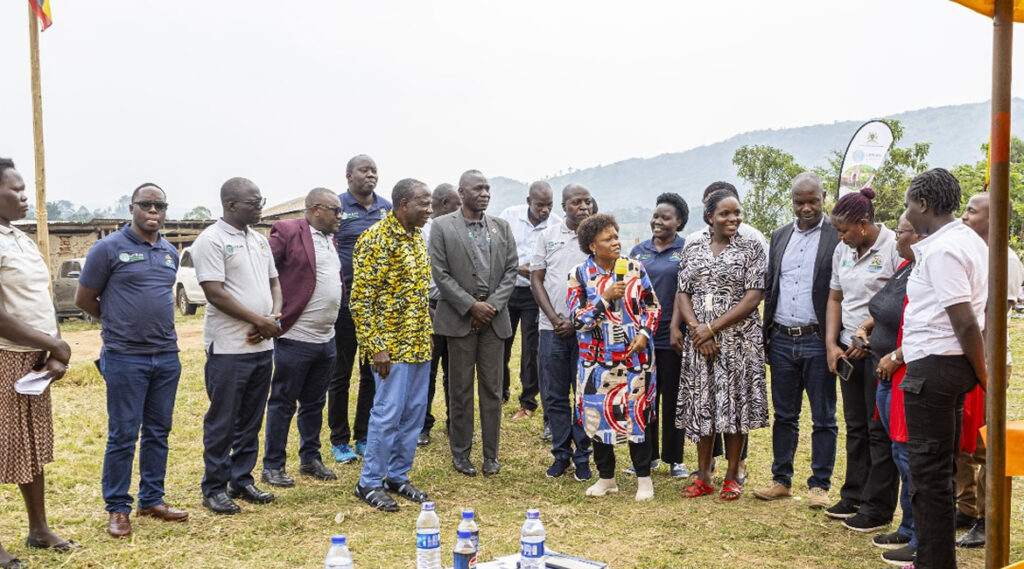
Uganda Commissions 13 New Boreholes in Kibaale, Boosting Water Security and Climate Resilience
- posted by: admin
- No Comments
In a major step toward water security and climate resilience, the Government of Uganda on 21st August 2025 commissioned 13 new hand-pump deep wells in Kibaale District, raising the number of functional boreholes from 11 to 24 and serving more than 26,000 households.
The initiative, implemented under the Local Climate Adaptive Living Facility (LIFE-AR) Program, was officially launched today by the Honorable Minister of Finance, Planning and Economic Development, Matia Kasaija, alongside officials from the Ministry of Water and Environment. Members of the LIFE-AR Steering Committee, including Environmental Alert, also joined the ceremony, reaffirming their commitment to strengthening locally led adaptation.
While 13 boreholes may seem like a modest achievement, the development marks a significant milestone. The wells are climate risk-informed and community-prioritized solutions designed and implemented by local residents themselves.
They represent a model of locally led adaptation where political leaders, technical experts, civil society, and community voices unite to address pressing water challenges.
Funded with UGX 170 million, the project highlights the transformative impact of channeling resources directly to empowered grassroots communities.
Key Benefits to Communities:
- Safe and clean water access for thousands of households, reducing dependence on unsafe sources such as swamps.
- Shorter walking distances: many households can now access water within 2km, in line with Uganda’s national target.
- Improved safety for women and girls, with reduced risks of gender-based violence during long walks for water.
- Better health outcomes, with fewer waterborne diseases.
- Higher school attendance, as children, particularly girls, spend more time in classrooms instead of fetching water.
The commissioning reflects collaboration between the Government of Uganda, development partners including the UK, Ireland, and Canada, and global actors such as the International Institute for Environment and Development (IIED) and the LDC Chair’s Office.
Minister Kasaija urged communities to take ownership of the boreholes through proper maintenance, noting that sustainability depends on local stewardship.
The event further underscored the role of civil society organizations like Environmental Alert, and other organizations continue to support the LIFE-AR Program by championing community voices, accountability, and climate justice at both local and national levels.
